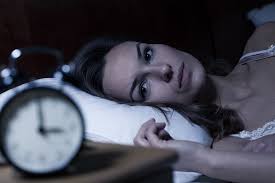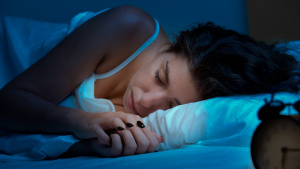Sleep Deprivation Effects On Mental Health
Sleeping is a state where your body is at complete rest. This is the only time in the day when your brain’s muscles are in the state of paralysis. While sleeping an individual is completely unaware of what is happening around them. Have you ever imagined why your ‘night’s sleep’ is considered your complete sleep? Because it plays a significant role in your daily life. Some of its features are the following:
- advances well-being
- maintains mental health
- enhances physical health
- improves the deteriorating quality of life
During your sleep, the body works continuously. It supports:
- healthy functioning of the brain
- maintain well-being
However, insomnia or improper sleep can raise the danger of some incessant health issues. Insomnia can affect:
- thinking process
- reactions
- work atmosphere
- learning
While sleeping, the following thing happens to your body:
- relaxation of muscles
- lowering of body temperature
- slow breathing.
When you are in a night of deep sleep your body faces several physiological changes that help in enhancing the functions of the immune system. Therefore, the lack of sleep is directly proportional to the working system of your body. The deep sleep time is also considered between 3 AM to 5 AM.
Adverse effects of sleep deprivation
- mood swings
- irritated mood
- anger
- stress
- reduced capabilities
- Psychiatric Disorders
Lack of sleep can hamper your stress hormones levels which can completely damage your brain. It also causes several hazards to your thinking abilities and imbalanced work life.
disorders that are caused by sleep deprivation:
Depression – Low Spirits
Despair is a complex mood disorder that leads to low spirits. Depression can be distinguished by,
- lack of vigor
- sadness
- disinterest
It is discovered that a lot of these signs are linked to the quality of sleep you are getting, which amplifies when your body suffers it. However, there is no direct connection between good sleep and depression. But it is mostly seen that people who have faced depression, had improper sleep. However, insomnia is a common issue amongst people with suicidal tendencies. Patients are also at a high risk of relapse if they are not able to get quality sleep.
Anxiety – Nervousness and Restlessness
- worry
- mental tension
- extreme fear
- angst
- panic attacks
- uneasiness
- jitters
A large number of anxiety patients also suffer from insomnia or sleep deprivation. Nowadays, kids, teenagers, and youth are suffering from it. It is also discovered that anxiety patients sleep for short periods than healthy youngsters.


